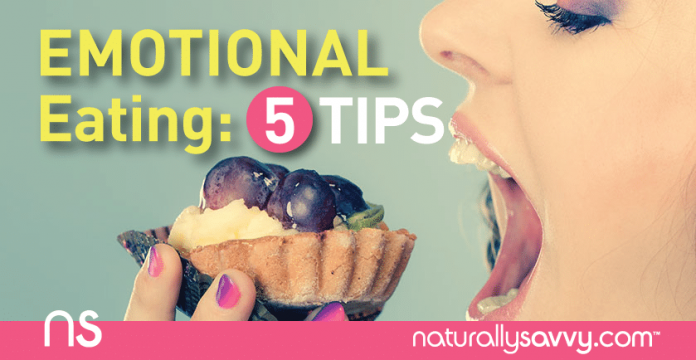
If we only ate when we were hungry so much of this country’s obesity epidemic would be under control. But emotional eating coupled with calorie-dense foods that are cheap and easily accessible has led to a nation with an expanding waistline. If you eat when you’re not hungry, can’t stop once you start, or your eating is triggered by emotions, then you’re likely an emotional eater. Here’s how to get control of emotional eating:
1. Be mindful.
It sounds cheesy but knowing is half the battle and this is true of emotional eating. Know your triggers. When you feel an episode coming on, take a few steps back and realize what you’re doing. Next up, realize that emotional eating only adds to the stress you feel afterward.
Read more about meditation and mindfulness apps
2. Feel the emotions instead of suppressing them.
Think about what would happen if you didn’t try and suppress emotions with food and instead you just felt them when they came on. Feel sadness, anxiety, and depression instead of reacting to it. Emotions and feelings are not you, they’re only a part of you and by feeling them you can see how quickly they come and go.
3. Sip on tea instead of binge eating.
A study in the Journal of Psychopharmacology found that sipping tea can decrease stress levels, which can release the need to suddenly suppress emotions with food. When study participants drank black tea they experienced a 47 percent drop in their cortisol levels, the stress hormone that makes you crave food, compared to 27 percent among the subjects who drank a placebo.

4. Notice boredom eating.
Boredom is another emotion that leads us to eat when we’re not hungry. Are you eating to fill a void or because you’re not sure what else to do with your time? If this is the case, take a step back and go for a walk, call a friend, and consider a new hobby. Just don’t let eating be a distraction.
5. Be aware of social influences.
Social influences can make us drink and eat too much. After a long day at work do you love to get together with friends over a fatty meal? Maybe hit a happy hour with fried foods and beer? Be aware of how those around you impact your emotional eating. We tend to eat more in social groups, so if this is the case with you, consider having dinner before you meet up with friends.




